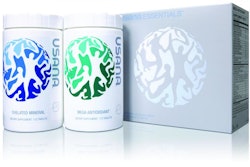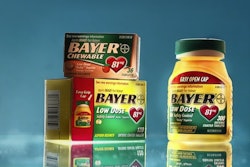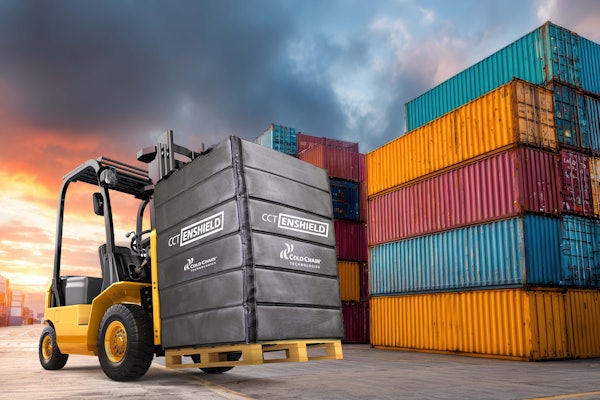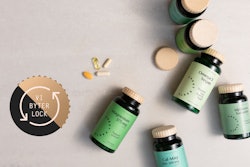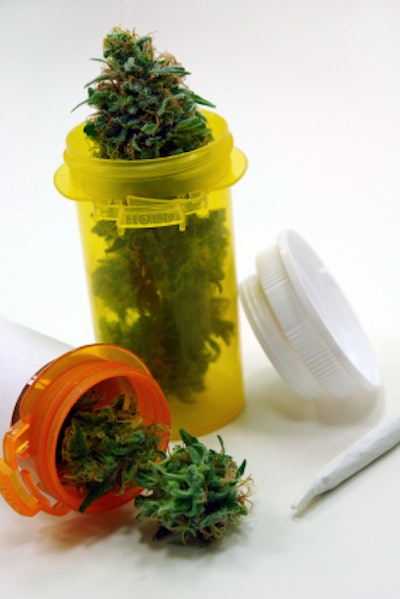
Kush Bottles, a wholesale distributor of medical wellness containers for the emerging holistic health industries, plans to converse with Colorado lawmakers to urge them to support the state's Amendment 64 Implementation Task Force recommendation that marijuana products would have to be sold in child-proof packaging.
A PR Newswire press release on the subject noted, “Current law states that marijuana and marijuana-infused products must be sold in child-resistant packaging. However, these rules are only temporary placeholders for the finalized regulations that will be rewritten before legal pot shops are set to open next January. In addition, these temporary rules remain largely unenforced up to this point, according to reports.
“Since a recent study appeared in JAMA Pediatric and reported on KDVR-TV and CBS 4 in Denver, which stated that marijuana ingestion is landing Colorado children in ICU, state lawmakers have been grappling with the issue. ‘Requiring child-resistant containers and warning labels for medical marijuana may help you prevent a trip to Children's Hospital in Denver,’ KDVR reported.”
The release said, “Executives at Kush Bottles are reaching out to Colorado lawmakers to discuss requiring child-resistant packaging for medical and retail marijuana as a permanent requirement.
"The good news is the marijuana industry seems to be adapting quickly to the idea of improving child safety. Last week, Nicholas Kovacevich, COO of Kush Bottles, a California-based company that makes child-proof containers for marijuana, highlighted the issue in a press release.
"Dispensaries should start using child-resistant containers right now to protect themselves from liability and protect children from accidental ingestion," Kovacevich stated. "Businesses in our industry, which is still in its infancy, must take all necessary steps to demonstrate our commitment to running safe, legitimate operations."
The release cited a report titled, "Preventing Unintentional Ingestion of Marijuana by Children: A Health Impact Assessment of Packaging Regulations in Retail Marijuana Establishments in Colorado," written as a joint effort between the Pediatric Injury Prevention Education and Research Program at the Colorado School of Public Health and the Children's Health Advocacy Institute at Children's Hospital Colorado, as recommending the following:
“1. All retail marijuana and marijuana products should leave retail establishments in child-resistant packaging as defined by ASTMvInternational and the Poison Prevention Packaging Act of 1970
“2. All child-resistant packaging should be opaque
“3. All child-resistant packaging should be recloseable
“4. Allowances should be made to reuse appropriate child-resistant packages.”
An Aug. 22, 2013 PR Newswire press release said Kush Bottles was “particularly concerned with the ‘Sandwich Bag’ dispensing that many dispensaries still use, which harkens back to the days of shady drug dealers and back-alley transactions.
Additional insights
Medical marijuana continues to make news, as evidenced by United Press International’s July 25, 2013 report, “DEA raids Seattle target medical marijuana dispensaries.”
The Drug Enforcement Administration (DEA) Position on Marijuana (Jan. 2011) pdf states, “Marijuana is properly categorized under Schedule I of the Controlled Substances Act (CSA), 21 U.S.C. §801, et seq. The clear weight of the currently available evidence supports this classification, including evidence that smoked marijuana has a high potential for abuse, has no accepted medicinal value in treatment in the United States, and evidence that there is a general lack of accepted safety for its use even under medical supervision.
“The campaign to legitimize what is called ‘medical’ marijuana is based on two propositions: first, that science views marijuana as medicine; and second, that the DEA targets sick and dying people using the drug. Neither proposition is true. Specifically, smoked marijuana has not withstood the rigors of science–it is not medicine, and it is not safe. Moreover, the DEA targets criminals engaged in the cultivation and trafficking of marijuana, not the sick and dying. This is true even in the 15 states that have approved the use of ‘medical’ marijuana.”
That said, there are those turning to medical marijuana as a treatment option. For example, an Aug. 29 ABCnews.com report (and related videos) explained a five-year-old Arizona boy would be given a $300/wk medical marijuana treatment in the form of oil drops to address his seizures, caused by cortical dysplasia, a genetic defect that disrupts cellular patterns in the brain and is often the cause of epilepsy. The report noted that prescription medications hadn’t worked for him, and had caused unwanted side effects.
Medical Marijuana ProCon.org, a 501©(3) nonprofit public charity, provides an online list of “20 legal medical marijuana states and DC, laws, fees, and possession limits.”
Of course, the Internet is filled with sites on medical marijuana. The Drug Policy Alliance’s website says, “One of the most egregious outcomes of marijuana prohibition is that many sick people cannot legally access the medicine that works best for them. For many seriously ill people, medical marijuana is the only medicine that relieves their pain and suffering, or treats symptoms of their medical condition, without debilitating side effects. Marijuana has been shown to alleviate symptoms of a huge variety of serious medical conditions including cancer, AIDS, and glaucoma, and is often an effective alternative to synthetic painkillers.”



